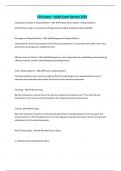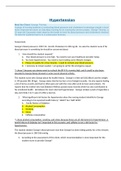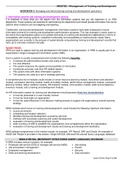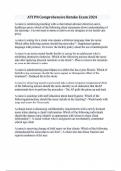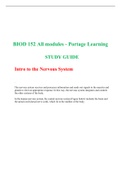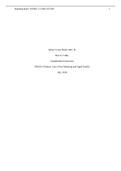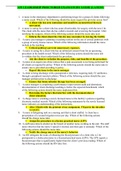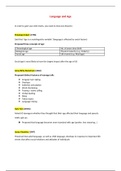Exam (elaborations)
CPA Exam – Audit Exam Review 2024
- Course
- Institution
CPA Exam – Audit Exam Review 2024 Independent Auditor's Responsibilities - ANS-Independent Auditor's Responsibilities: performing an audit in accordance with generally accepted auditing standards (GAAS). Management Responsibilities - ANS-Management Responsibilities: responsible for the fair p...
[Show more]
